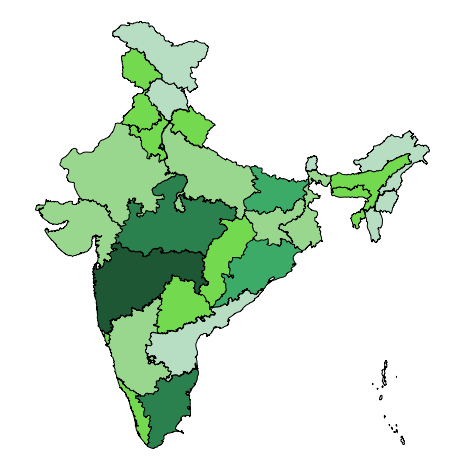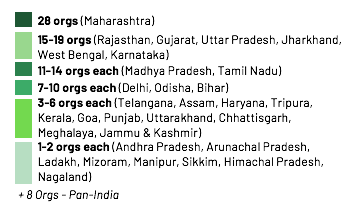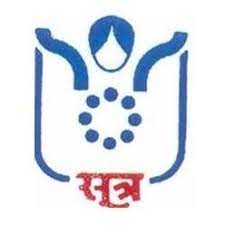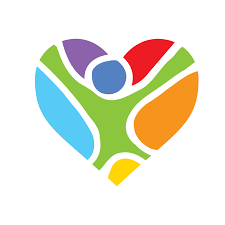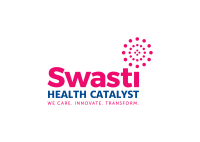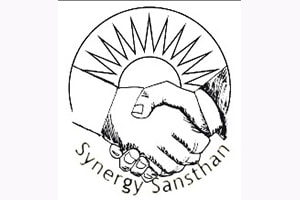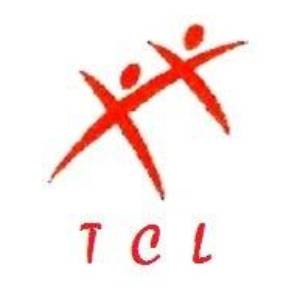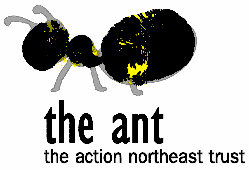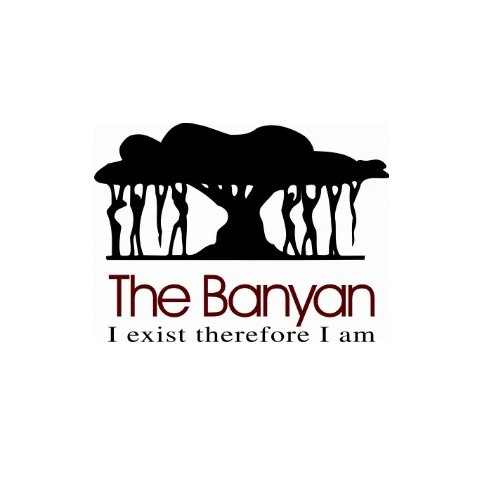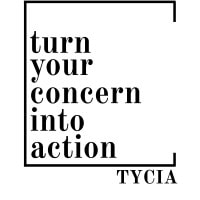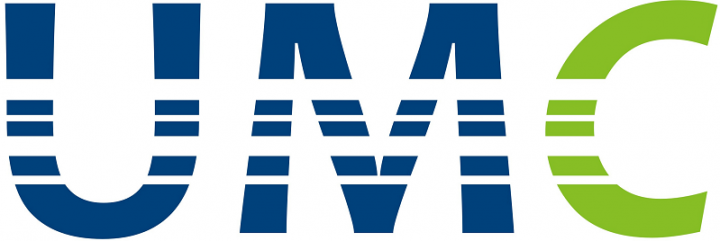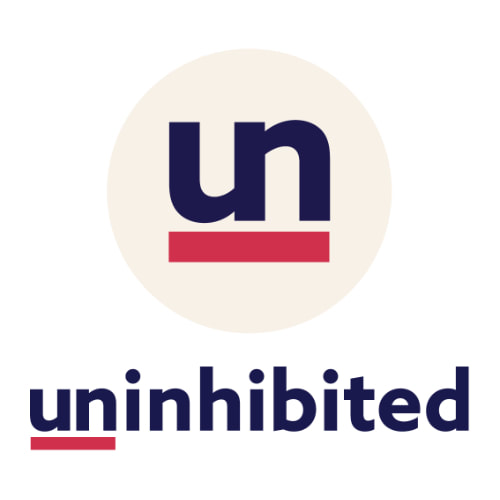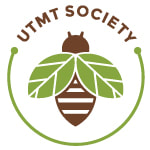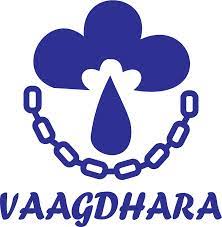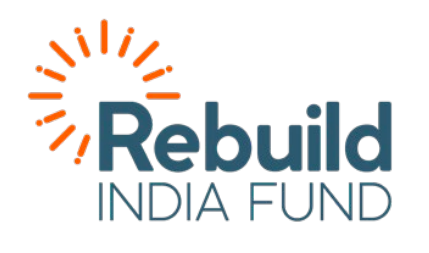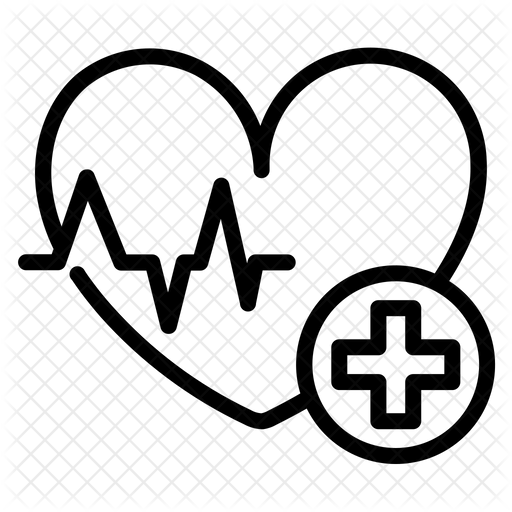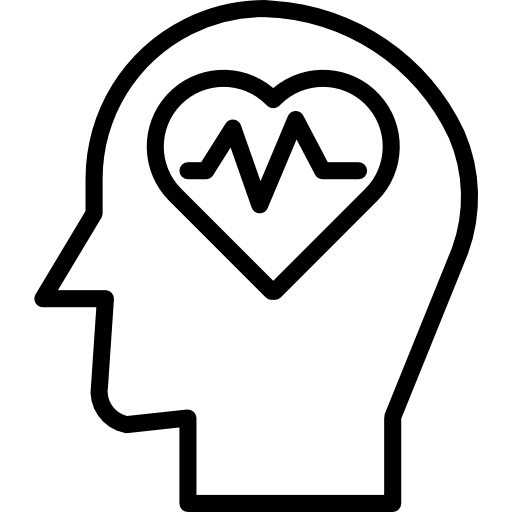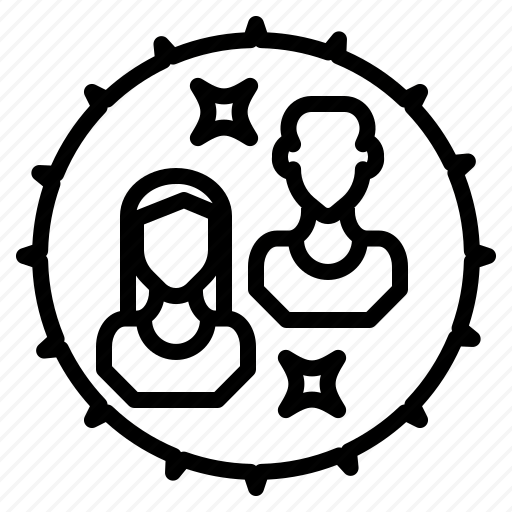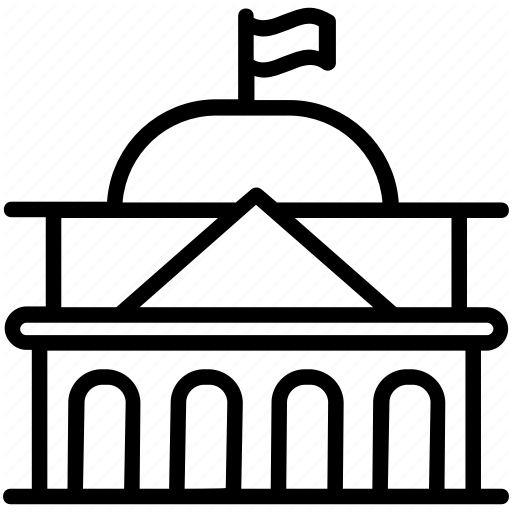As the pandemic swept India exponentially, it became evident that marginalized communities were affected disproportionately by COVID.
In India, over 230 million people fell below the poverty line; with schools being shut for close to 2 years, education was disrupted for 286 million children - only 8% of rural children were able to access online education. NGOs were on the frontlines of India's response to COVID, but 92% of them reported being underfunded during the pandemic.
This grim reality motivated us to launch #BackTheFrontline in late April 2021, a COVID relief campaign aimed at supporting 150+ grassroots NGOs so that they could continue the work they were doing for vulnerable communities, and help communities survive the pandemic. Within less than a year, the campaign has raised over $10 million and disbursed it to 152 NGOs from across 30 states & union territories of India, impacting over 2.9 million lives.
In India, over 230 million people fell below the poverty line; with schools being shut for close to 2 years, education was disrupted for 286 million children - only 8% of rural children were able to access online education. NGOs were on the frontlines of India's response to COVID, but 92% of them reported being underfunded during the pandemic.
This grim reality motivated us to launch #BackTheFrontline in late April 2021, a COVID relief campaign aimed at supporting 150+ grassroots NGOs so that they could continue the work they were doing for vulnerable communities, and help communities survive the pandemic. Within less than a year, the campaign has raised over $10 million and disbursed it to 152 NGOs from across 30 states & union territories of India, impacting over 2.9 million lives.
The NGOs
-
A-F
-
G-M
-
N-S
-
T-Z
<
>
|
Aajeevika Bureau
Since 2004, Aajeevika Bureau (AB) has focused its work on the seasonal, circular migrant workforce of Rajasthan and Gujarat. AB aims to provide lasting solutions to economic and socio-legal problems of migrant workers through policy, research, advocacy and enabling strong workers’ organizations. Their COVID-19 relief efforts include:
|
|
Aangan Trust
Established in 2001, Aangan Trust has been dedicatedly working in 9 hotspots across different states to ensure strong child protection systems. They have also been actively involved in COVID-19 relief work which includes:
|
|
Adhyayan Foundation
Established in 2015, Adhyayan Foundation is a capacity building organization dedicated to improving the quality of leadership and learning in schools and colleges. They have worked with various schools across 27 states. They propose to form a ‘COVID-19 Youth Volunteer Crew - Goa’ amongst the children of government, aided/unaided high schools to reach urban and rural parts of Goa. This initiative will enable students to -
|
|
Anubhuti Trust
Since 2016, Anubhuti Trust has been working with the most marginalized tribes and focuses on mental health for building resilience in the community via youth leaders in Maharashtra. Their COVID-19 response focuses on NT-DNT (nomadic and denotified tribes) communities and includes:
|
|
Apnalaya
Set up in 1972, Apnalya works with the urban poor enabling access to basic services, healthcare, education and livelihoods, empowering them to help themselves and ensuring provision of civic entitlements through advocacy with the government in Maharashtra. It's offering relief support to families living in Shivaji Nagar, Mumbai via:
|
|
Apnishala
Founded in 2013, Apnishala has been working towards building social and emotional competencies among individuals to constructively engage with society. They are currently operating in different cities in Maharashtra. They have worked on the following initiatives to offer support to children and their families:
|
|
ARMMAN
Founded in 2008, ARMMAN works in 17 states in India with programs that have reached more than 24 million women and their children. ARMMAN seeks to empower women to seek care in time while training health workers to provide timely management of high-risk conditions. ARMMAN leveraged its existing networks and infrastructure to implement COVID-19 interventions that include:
|
|
Arpan
Started in 2008, Arpan is operational in Maharashtra and present pan-India through online training programs, working on protecting children from sexual abuse and heal from its ill effects, providing prevention and intervention services to children and adults.
|
|
ASHWINI
ASHWINI is a registered charitable society established in 1990.Its primary objective is to establish an accessible, effective and sustainable health system that is owned by the community.
|
|
Barefoot College
Founded in 1972, The Barefoot College connects rural communities to solar, water, education, professions and advocacy to help communities and individuals take control of their lives and the well-being of their communities. Their task force has been actively providing COVID-19 relief to communities.
|
|
Basic Health Services
Established in 2012, Basic Health Services focuses on high-quality, low-cost primary healthcare services for vulnerable communities in Rajasthan. Their COVID-19 relief activities include:
|
|
CFAR
Founded in January 1998, CFAR is committed to advancing the rights of a cross-section of marginal communities such as the urban poor, the girl child, unorganized workers, transgender persons and sexual minorities, single women etc. They have been actively working towards providing COVID-19 relief by:
|
|
Centre for Migration and Inclusive Development (CMID)
CMID is an independent non-profit devoted to migration and inclusive development, advocating for and promoting the social inclusion of migrants and other socially disadvantaged populations in Karnataka.
|
|
Centre for Wildlife Studies
Established in 1984, The Centre for Wildlife Studies is an internationally recognized centre of excellence in the arenas of wildlife research, conservation, policy and education. They practice science-based conservation to promote the protection of wildlife and wildlands. Since PHCs in rural areas of the Western Ghats have very little access to medical supplies to treat and manage the pandemic CWS has decided to intervene by:
|
|
Chetna Vikas
Chetna Vikas, founded in 1985, is for the empowerment and overall development of the disadvantaged sections of society in Jharkhand. To combat COVID-19, Chetna Vikas aims to do the following in 3 districts of the Santhal Pargana regions of Jharkhand:
|
|
CORO India Over the last 25 years, CORO has mobilized and inspired local people and concerned authorities to stand for equality and justice in gender-related issues in Maharashtra and Gujarat. In their relief efforts with vulnerable communities, CORO is looking to provide:
|
|
Dharma Life
Active since 2009, Dharma Life is dedicated to increasing quality of life of low-income households in rural India through a unique, community-driven women-focused entrepreneurship model. Their COVID-19 relief efforts involve:
|
|
Diya Ghar
Since 2016, Diya Ghar has been working towards their mission of setting up pre-schools and daycare centres for children of migrant workers in the city of Bangalore and gradually expanding to other cities in India. Their COVID-19 relief efforts include:
|
|
Darbar Sahitya Sansada (DSS)
For the last 20 years, DSS has been working with agrarian, tribal and forest dwelling communities in Odisha to deal with food and livelihood security. Their COVID-19 relief activities are:
|
|
Dream a Dream
Started in 1999, Dream a Dream works with 10,000 young people a year through a few key initiatives - an after schools program and a career placements program with direct partnerships with schools in Bangalore & collaboratives with other state governments in Jharkhand, Telangana, Delhi, Karnataka and Uttarakhand. To combat COVID-19 they undertook the following relief efforts:
|
|
EKTA Resource Centre for Women
Ekta was started in the year 1990 and aims at gender justice by empowering women through knowledge sharing, training and alliance building.
|
|
Gramalaya
Gramalaya was established in 1987 with a group of committed youths in the field of rural development. They have been working in the field of water, sanitation, and hygiene with various demographic conditions covering rural, urban, coastal and tribal areas. Gramalaya's COVID-19 relief activities are:
|
|
Goonj
Since 1999, Goonj has been undertaking disaster relief, humanitarian aid and community development in parts of 23 states across India. As part of their COVID-19 relief work, they have been:
|
|
Gramin Vikas Vigyan Samiti (GRAVIS)
Founded in 1983, GRAVIS is a leading NGO working in Thar Desert, Rajasthan, Uttarakhand, and Bundelkhand regions of India. They have been dedicatedly working among impoverished rural communities. As part of their Covid relief work, they:
|
|
Gram Vikas
GVT's aim since 2001 in Gujarat (Bharuch & Narmada) has been to secure integrated development through people’s participation. The key areas identified for interventions include child rights, education, health and hygiene, sustainable livelihood, and women empowerment. GVT's COVID-19 relief efforts were centred around providing food to the most vulnerable and included:
|
|
Guardian of Dreams
Guardians of Dreams is a start-up non-profit organisation that works with children in need of care and protection who grow up in Child Care Institutions (CCIs) like orphanages, open shelters, observation homes, adoption centres, etc. As part of their COVID-19 relief work, they have set up 3 core activities:
|
|
Hasuri Dala
Founded in 2011, Hasiru Dala is a social impact organisation in Karnataka that works with waste pickers and other waste workers to ensure them a life with dignity. As part of their COVID-19 interventions, they have been providing:
|
|
Industree
Established in 2000, Industree Foundation works in Karnataka, Odisha & Tamil Nadu to holistically tackle the root causes of poverty by creating an ownership based, organized creative manufacturing ecosystem for micro-entrepreneurs. Their COVID-19 relief interventions include:
|
|
Jan Chetna Manch Bokaro
Established in 1994, Jan Chetna Manch is working in various focus areas to uplift backward villages in the district of Bokaro, Jharkhand. As par of their COVID-19 relief activities, they :
|
|
Jan Vikas Samiti
Since its inception in 1998, JVS has been working for the integral development of the marginalized and underprivileged sections of the society, particularly of women, children, scheduled caste and persons with disabilities. As part of their COVID-19 relief activities, they are:
|
|
Jan Sahas
For 20 years, Jan Sahas has been working with the most excluded social groups on safe migration and workers’ protection; and prevention of sexual violence against women and children. Its initiatives are spread across 11 states in India. Through the Migrants Resilience Collaborative anchored by Jan Sahas - the organization will focus on 100K of the most vulnerable among the migrant communities to provide the following relief:
|
|
Jan Sahyog Kendra
Jan Sahyog Kendra is a grass root level organization, working in the field of development and mobilization of deprived community in the area of Hazaribag since 2004.
|
|
Jan Swasthya Sahyog
Jan Swasthya Sahyog (JSS) was founded in 1996 with the mission of changing the health situation in rural India. The organization runs high impact health focussed programs in remote tribal areas in Chattisgarh and Madhya Pradesh. Some of the ways in which they are serving rural and tribal communities are:
|
|
Jan Vikas (Centre for Social Justice)
Founded in 1987, Janvikas uses the judicial system to fight for the rights of the most marginalized migrant communities and informal workers, as well as urban poor and youth. They are running their operations in 11 districts of Gujarat. Their COVID-19 relief program activities include:
|
|
Kajla Jan Kalyan Samiti
Kajla Jan Kalyan Samiti works in the village of Kajla in West Bengal to empower relatively deprived people to fight against all sorts of exploitation, deprivation, discrimination and injustice.
|
|
Kandhamal Zilla Sabuja Vaidya Sangathan (KZSVS) Established in 2004, KZSVS aims to improve the quality of life of the most disadvantaged members of the society in Kandhamal district of Odisha through community empowerment.
|
|
Karnataka Health Promotion Trust (KHPT)
In 2003, KHPT was founded with a mission to enhance the health and wellbeing of vulnerable communities and they started by focussing on reducing the prevalence of HIV in Karnataka, specifically among most at-risk populations. Over the years they have successfully scaled their programmes beyond Karnataka. KHPT’s interventions during the pandemic have been focused on:
|
|
Keystone Foundation
Started in 1994, the work of Keystone Foundation is focused on the Nilgiri Biosphere Reserve, where it currently works in 135 indigenous villages with an estimated number of 15000 individuals.
|
|
Kotda Adivasi Sangathna (KAS)
KAS was formed in 1998 to provide development services and support to tribal communities in the remote parts of Udaipur and Sirohi districts which border North Gujarat. As part of COVID-19 relief work, they are:
|
|
Lok Swasthya SEWA Trust (SEWA Bharat)
What began as the SEWA movement in Ahmedabad in 1972, is now a national union of over 18 lakh women workers of the informal economy in 14 states of India. Lok Swasthya has been bringing the issues of women workers directly to the attention of policy-makers and legislators across different levels and in their voices.
|
|
Magic Bus
Founded in 1999, Magic Bus equips children and young people in the age group of 12 to 18, with the skills and knowledge they need, to grow up and move out of poverty. Through its COVID-19 Crisis Recovery Programme, Magic Bus has reached out to lakhs of children and young people across 22 geographies:
|
|
MAHAN Trust
Started in 1997, MAHAN is the only NGO in the Melghat region (Maharashtra) providing medical care and Health Services to the tribal communities.
|
|
Mahila Abhivrudhi Mattu Samrakshana Samsthe (MASS)
Mahila Abhivruddi Mattu Samrakshana Samsthe (MASS) is based in the Belgaum district of the southern Indian state of Karnataka. MASS mainly works with Dalit women with a focus on ex-Devadasi women and their children. As part of their COVID-19 relief interventions, MASS are:
|
|
Mahila Housing Trust
Initiated in 1994, Mahila Housing Sewa Trust (MHT)’s mission is to organize and empower women in poor communities across Rajasthan, Madhya Pradesh, Gujarat, Maharashtra, Jharkhand and Uttar Pradesh to improve their habitat. Through its grassroots programs, MHT empowers women to exercise their rights and uplift living conditions for their families and neighbours.
|
|
Make A Difference (MAD)
Since 2006, MAD has been working towards foundational skill development, education support, individual care and attention and customised programmes for children in 23 different cities across the country. Through their COVID-19 support, they have been able to help children and youth in a variety of ways:
|
|
Mann Deshi
Founded in 1996, Mann Deshi has been providing access to financial education, skills and a support network for rural women in Maharashtra. They have been working on ensuring supplies of medical facilities in rural Maharashtra in collaboration with the district authorities to provide relief to the overburdened infrastructure in the state. Their specific activities include:
|
|
Martha Farrell Foundation (PRIA)
Established in 1982, The Martha Farrell Foundation supports practical interventions which are committed to achieving a gender-just society and promoting life-long learning. They have been working closely to alleviate immediate distress of women domestic workers in and around Delhi, by providing the following relief efforts:
|
|
Milaan Foundation
Milaan Foundation is a social impact organization founded in 2007, which envisions a world where every girl has the knowledge, skills, and social environment to pursue her dreams. They operate in the states of Assam, Uttar Pradesh, Madhya Pradesh and Karnataka. As part of COVID-19 relief work, they aim to:
|
|
Generous contributions so far have enabled the procurement of over 450 oxygen concentrators. These concentrators will be distributed in partnership with Mission Oxygen to public healthcare facilities, army hospitals and other institutions in greatest need. |
|
Navchetana Sarvangin Vikas Kendra
Navchetana Sarvangin Vikas Kendra (NSVK) strives for transforming unjust structures of the society from grass roots. They aim at building harmonious and self-sufficient communities for people from various religions, languages and cultures.
|
|
Network for Enterprise Enhancement and Development Support (NEEDS)
Established in late 1998, NEEDS [Network for Enterprise Enhancement and Development Support] started interventions in selected poverty-stricken pockets of Bihar and Jharkhand. As part of their COVID-19 relief programmes, they have done the following:
|
|
Parivaar
Parivaar was started in late 2003 for children from impoverished and destitute backgrounds. Their vision is to reach as many children and youth as possible throughout India and help transform their lives. They have been actively involved in COVID-19 relief work as well through:
|
|
Pravah
Pravah was seeded in 1993, with the intent to create safe spaces for adolescents and youth to form their own opinions and bring about a change within themselves and the society around them.
|
|
Prerana
Prerana is a civil society organization that started working in the red light areas of Mumbai in 1986 and takes a 360 degree approach to its efforts in ending commercial sexual exploitation and trafficking. As part of their COVID-19 relief efforts, they are:
|
|
Protsahan India Foundation
Founded in 2010, Protsahan India Foundation is a centre of excellence in innovation to eradicate child abuse so that all girls living in vulnerability grow up empowered with access to education and healthcare in safe spaces and freedom from abuse of any kind. The organization is working with children affected by COVID-19 by:
|
|
Project Potential
Started in 2012, Project Potential envisions a movement of change-makers towards sustainable rural development in backward districts of Bihar. Their COVID-19 relief efforts are focused mainly on healthcare. They have helped by:
|
|
Rural Education And Development (READ) India
Since 2008, READ India has helped bring 25 READ Centres (Community Library and Resource Centres) to life in 10 States across India. They also aim to provide COVID-19 relief in the communities they're working with by:
|
|
Saajha
Founded in 2014, Saajha believes in the dignity and potential of parents and enables them to impact the lives of children. Saajha currently works with 1,300 schools in Delhi, Karnataka, and Jharkhand. The 2 big issues that the parents they work with have been facing are - lack of essential commodities and engaging with children. To address these two, they have designed a two-pronged approach for ameliorating the situation in the communities.
|
|
Salaam Baalak Trust Mumbai
Salaam Baalak Trust started their work in 1989 with 1 shelter but over the years have scaled their work to an extent where today they are providing care to over 500 children across Mumbai, Thane, Kalyan & Solapur. As part of their COVID-19 relief work, they are:
|
|
Sampark
Based out of Karnataka for the last 30 years, Sampark has been helping vulnerable and poor people, especially women, to gain direct control over and improve their lives by educational interventions primarily aimed at increasing people’s income earning ability. They are working with both migrant workers and their children to enable the following:
|
|
Sangath
Working in Goa for the last 24 years, Sangath is committed to improving mental health services across the age spectrum and also making them accessible and affordable. They have launched a virtual COVID-19 wellbeing center offering free phone-based and online mental health services by its trained team to anyone across the country, with a special focus on frontline and essential workers.
|
|
Sathee
Registered in 1996, Sathee is working towards the socio-economic empowerment of tribes, OBCs and other oppressed communities. Through their COVID-19 relief efforts, they aim to:
|
|
SaveLIFE Foundation (SLF)
Founded in 2008, SaveLIFE Foundation is an independent NGO committed to improving road safety and emergency medical care across India, especially focussing on the urban poor in Delhi and Uttar Pradesh. Therefore, their response to COVID-19 was also centred around medical needs and included:
|
|
SEEDS India
For the last 26 years, SEEDS has been building the resilience of people exposed to disasters through practical solutions for disaster readiness, response and rehabilitation in Uttarakhand and West Bengal. They aim to do the following for COVID-19:
|
|
Seva Mandir
Established in 1968, Seva Mandir has established itself as one of the world's most innovative organizations in addressing the problems of resource management, livelihoods improvement, and village-level governance. They have also been actively doing their bit towards COVID-19 relief by:
|
|
Seven Sisters Development Assistance (SeSTA)
Registered in 2011, Seven Sisters Development Assistance (SeSTA) collectivizes women to form Self Help Groups (SHGs), builds their capabilities and strengthens livelihood systems across NE India. Their COVID-19 relief efforts aim to reach the most vulnerable and include:
|
|
SEWA Rural
SEWA Rural has been working incessantly for the past 40 years towards the improvement of people's health and other fields in the rural and tribal areas of Jhagadia in South Gujarat. Their COVID-19 interventions include important medical support such as:
|
|
Shaishav
Shaishav is a grassroots organization working alongside children from marginalised communities in Bhavnagar, Gujarat, India. Shaishav intends to initiate an innovative yet sustainable model of education for tribal and other children throughtheir project “Aaranyak.” Objectives of their six month project are as follows:
|
|
Shelter Associates
Shelter Associates is a Civil Society Organization established in 1993 to improve the living conditions of the urban poor in India. They have been providing all possible support in fighting the pandemic in the slums of Maharashtra. Their programmes include:
|
|
SNEHA
Since 1999, SNEHA has been working with women, adolescents and children in the most vulnerable slum communities of Mumbai. Their COVID-19 relied efforts include:
|
|
Society for Education, Action and Research in Community Health (SEARCH)
Established in 1986, SEARCH has been providing healthcare to the rural and tribal people in Gadchiroli district and empowering the communities to take care of their own health. They've also been conducting high-quality research to shape the local, national and global health policies. Their COVID-19 relief activities in the different villages of the district include:
|
|
Spandan Samaj Seva Samiti
Spandan Samaj Seva Samiti's mission is to empower the marginalized communities in a manner that they are able to secure their Human & Constitutional Rights and lead a life of dignity. They work in the state of Madhya Pradesh.
|
|
Swasth Foundation
Founded in 2009, Swasth Foundation is a non-profit social enterprise committed to health and joy for all. They focus on improving the well-being of the poor by providing a range of affordable and high-quality primary-preventive health services in Maharashtra, Gujarat and Karnataka. Their COVOID-19 interventions include:
|
|
Swasti
Founded in 2002, Swasti provides quality healthcare and medical facilities to some of the poorest communities in Karnataka. Through their COVID-19 relief work, they are:
|
|
Swayam Shiksha Prayog (SSP)
Since 1998, SSP has focused on revitalizing rural economies by putting women in charge in Maharashtra, Kerala, Bihar and Odisha. They have taken the lead in working with the local government for Covid-19 relief work by:
|
|
Funds deployed to SaveLife Foundation, Swasti, Jan Vikas, Goonj and Mahila Housing Trust have been directed towards:
|
|
The Banyan
Established in 1993, the team at Banyan Tree offers comprehensive mental health services in a range of institutional and community settings for people with mental health issues living in homelessness and poverty. They work in the states of Tamil Nadu, Kerala and Maharashtra.
|
|
Urban Management Centre (UMC)
Urban Management Centre is a non-profit organisation with a history dating back to 1997. We work with Local, State and National Governments to help cities make the lives of everyone better. Through capacity building, consulting, technical advisories, and ground work in vulnerable communities we demonstrate that India's cities are able to make great strides towards equity, sustainability and development.
|
|
Vidhayak Bharti
Vidhayak Bharti is a rights-based non-profit for the promotion and preservation of child rights and child protection in society. Through their programs, they work with and strengthen existing governmental systems, with children and adults alike to build a cohesive, protective environment for children in Maharashtra. As part of their COVID-19 relief efforts, they did the following:
|
|
Vikas Samwad
VSS is a research, documentation and capacity building organisation for building a team of socially sensitive cadre, communicators and organised groups with a child centric perspective.
|
|
WASH Institute
WASH Institute was established in 2008 to address issues such as ground water depletion, water quality deterioration, poor sanitation coverage and other emerging issues due to climate change. As part of their COVID-19 relief activities, they are providing:
|
|
YUVA India
Founded in 1984, YUVA is a non-profit development organisation committed to enabling vulnerable groups to access their rights. YUVA operates in the states of Maharashtra, Madhya Pradesh, Odisha, Assam and New Delhi. As part of Covid relief work, they have been:
|
|
17,000 ft Foundation
Started in 2012, 17,000 ft Foundation works to improve the lives of the people of remote, high altitude mountainous villages of Ladakh, in areas that lie isolated and ignored for centuries due to problems of harsh terrain. In their COVID-19 relief plans, they hope to:
|
The relief efforts of our 150+ grassroots NGO portfolio focused on India's most vulnerable groups across 31 States & Union Territories
